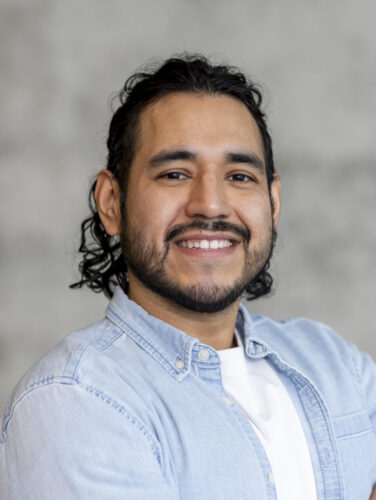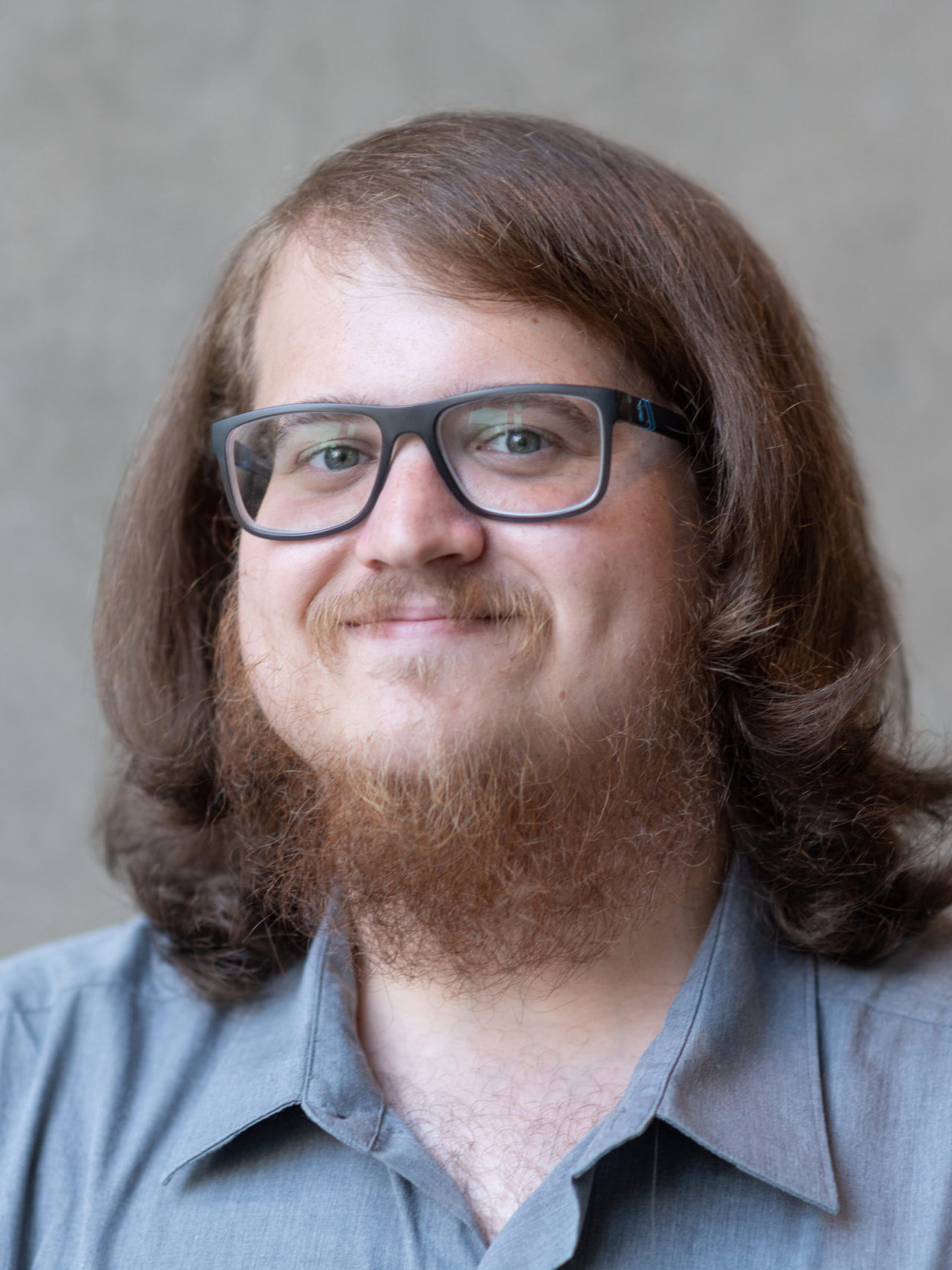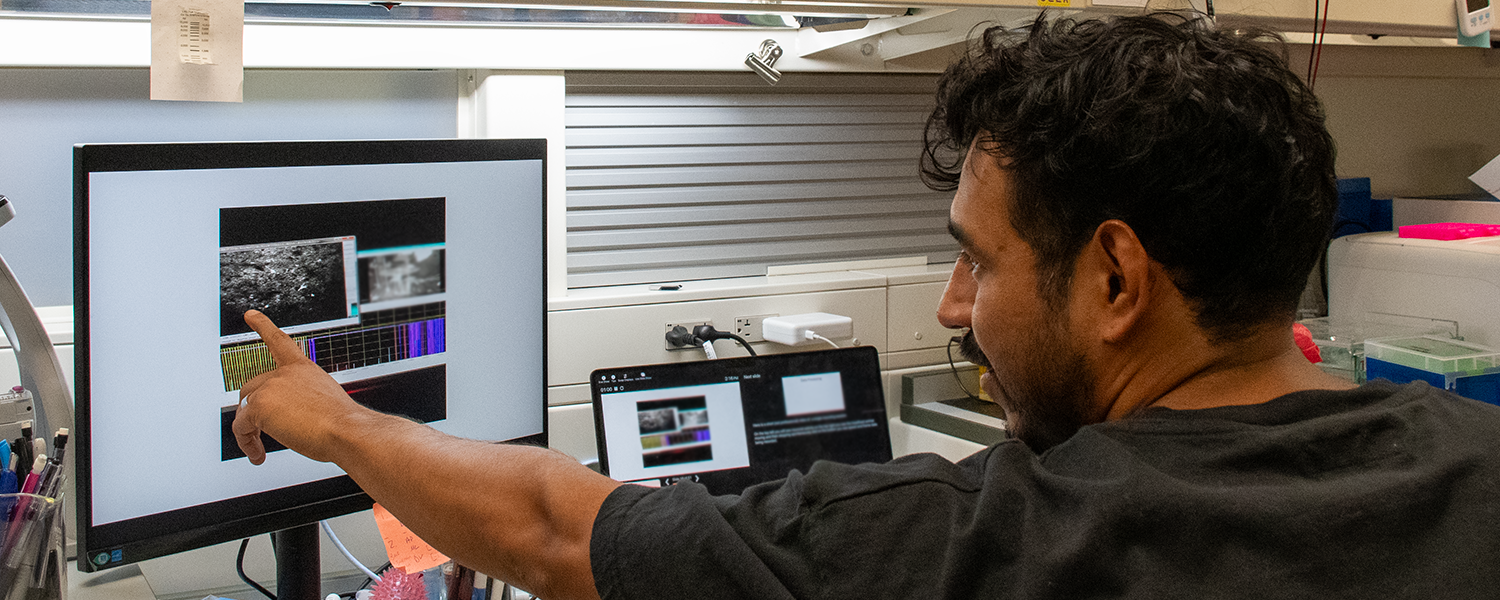Dr. Carlos Vivaldo likes to think of the brain as a computer.
It’s made up of cells called neurons, which are akin to microchips and processors, forming networks that govern behavior, thought and function. When diseases like Parkinson’s, Alzheimer’s and frontotemporal dementia take root in the brain, they derail neurons’ ability to do their jobs, which manifests in the hallmark symptoms of these diseases. Vivaldo wants to understand how this impacts the information neurons hold — much like how changes in tiny microchips might affect a larger computer — and leverage discoveries to find better treatments.
Vivaldo pursues these efforts as a postdoctoral fellow in the lab of VAI Assistant Professor Dr. Qiang Zhu. Every day can look different: Some involve investigating brain activity while others focus on deploying complex computer algorithms to analyze data.
“I chose the Institute because it’s a place that values everyone’s skillset. If you have knowledge or abilities that no one else does, the teams and labs help you maximize your contributions to research, and everyone gets to do what they’re best at,” he said.
Earlier in his career, Vivaldo bounced around various fields and interests. Geology, then philosophy, followed by a brief conviction in becoming a chemist, all leading to a passion for neuroscience and the tiny neuronal cells that affect our behavior. He recalls a particular experience after college, as a research assistant at Columbia University, that ignited a passion to better understand the brain.

“People with a late-stage neurodegenerative disease often are extremely limited in their movement and body functions, but many respond to sensory cues,” Vivaldo said. “If they hear a familial voice or their favorite song, they start reacting to it. I was fascinated by it — somehow this tiny cue can trigger such a complex thought or behavior.”
He would then focus on learning the techniques to understand the cellular computers that manage our thoughts and behaviors by training as a systems neuroscientist at the University of Michigan-Ann Arbor. His passion for understanding the brain led Vivaldo to join VAI in January 2024 as an Inspire Fellow — a program built to support postdoctoral fellows who identify as members of underrepresented racial and ethnic groups as defined by the National Institutes of Health.
As a first generation Mexican-American, he saw it as an exciting opportunity, one that not only allows him to pursue research he is passionate about, but to be a trailblazer.
“By definition, you don’t see a lot of first-generation Mexican-Americans in science, and you wouldn’t really see them on the forefront of technology,” Vivaldo said. “It’s a unique experience where I can strive to be the best scientist I can be while also working to be an inspiration for people like me who wonder what kind of opportunities are out there — we can show the community that these experiences exist, and you can use your knowledge to push ahead.”
Vivaldo has a passion for being on the forefront of things, working along scientists who are laying the groundwork with research and papers. He wants to know more about how those “microchip-like” parts of our brain work: If scientists can identify early changes in the brain, they can accurately predict how a disease may develop. Even further, he says, if we look at a patient who is recovering from a neurodegenerative disease, there is still a brain that has been damaged.
“The brain is all one big system, so if one part is damaged others will try to compensate and function differently, so you end up with residual or collateral damage,” Vivaldo said. “At the end of the day, everything is connected, and there are many more techniques and approaches to discover — it’s inspiring to play a part in those future developments.”
VAI Inspire Fellowship
Exceptional science benefits from exceptional diversity, and Van Andel Institute is committed to increasing representation in the biomedical research community through a variety of training programs. One such opportunity is the VAI Inspire Fellowship — a program built to support postdoctoral fellows who identify as members of underrepresented racial and ethnic groups as defined by the National Institutes of Health. The fellowship offers exceptional research training, a suite of state-of-the-art scientific resources and individualized professional development, all in the name of building a professional foundation from which Inspire Fellows can launch their independent research careers.

